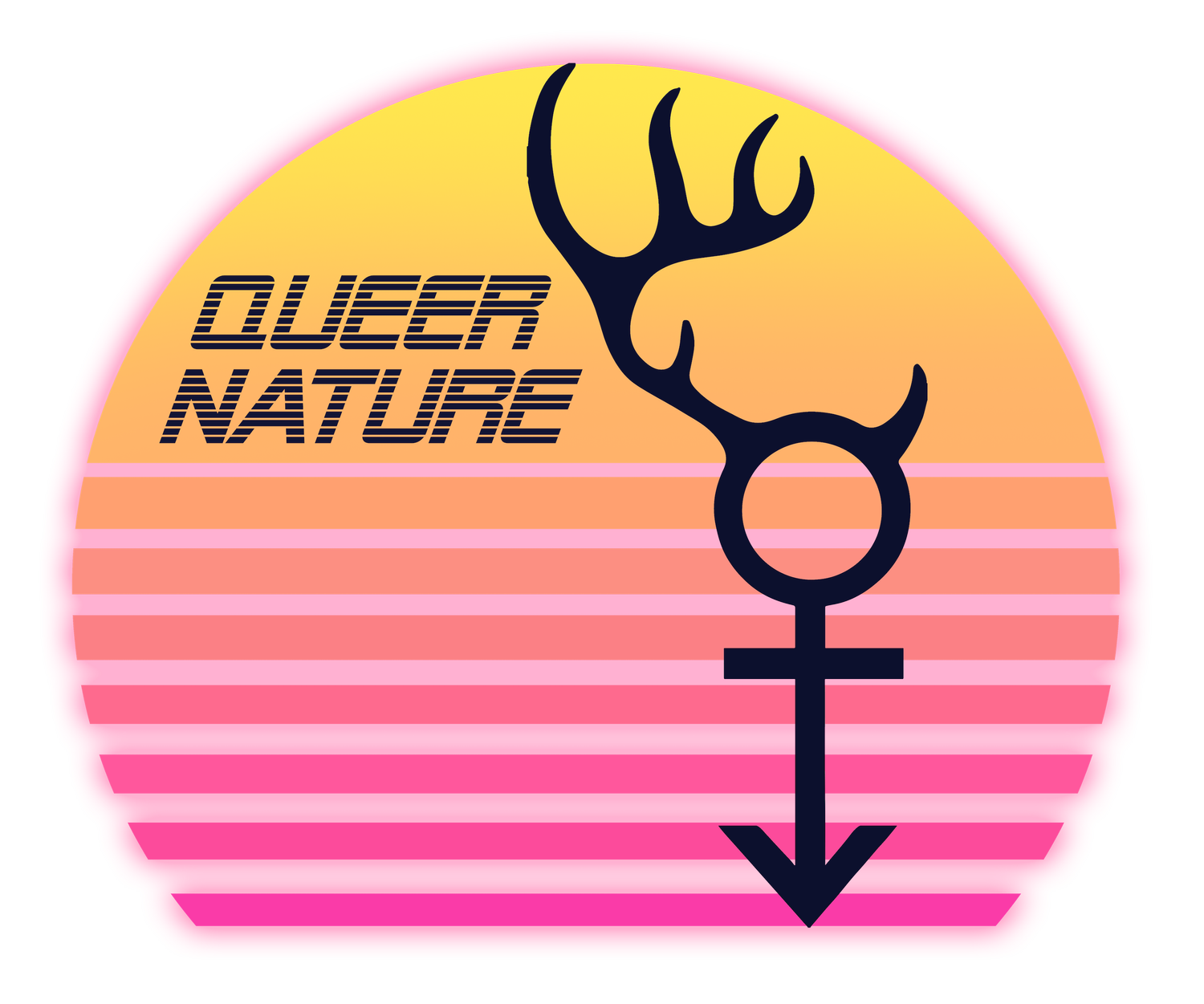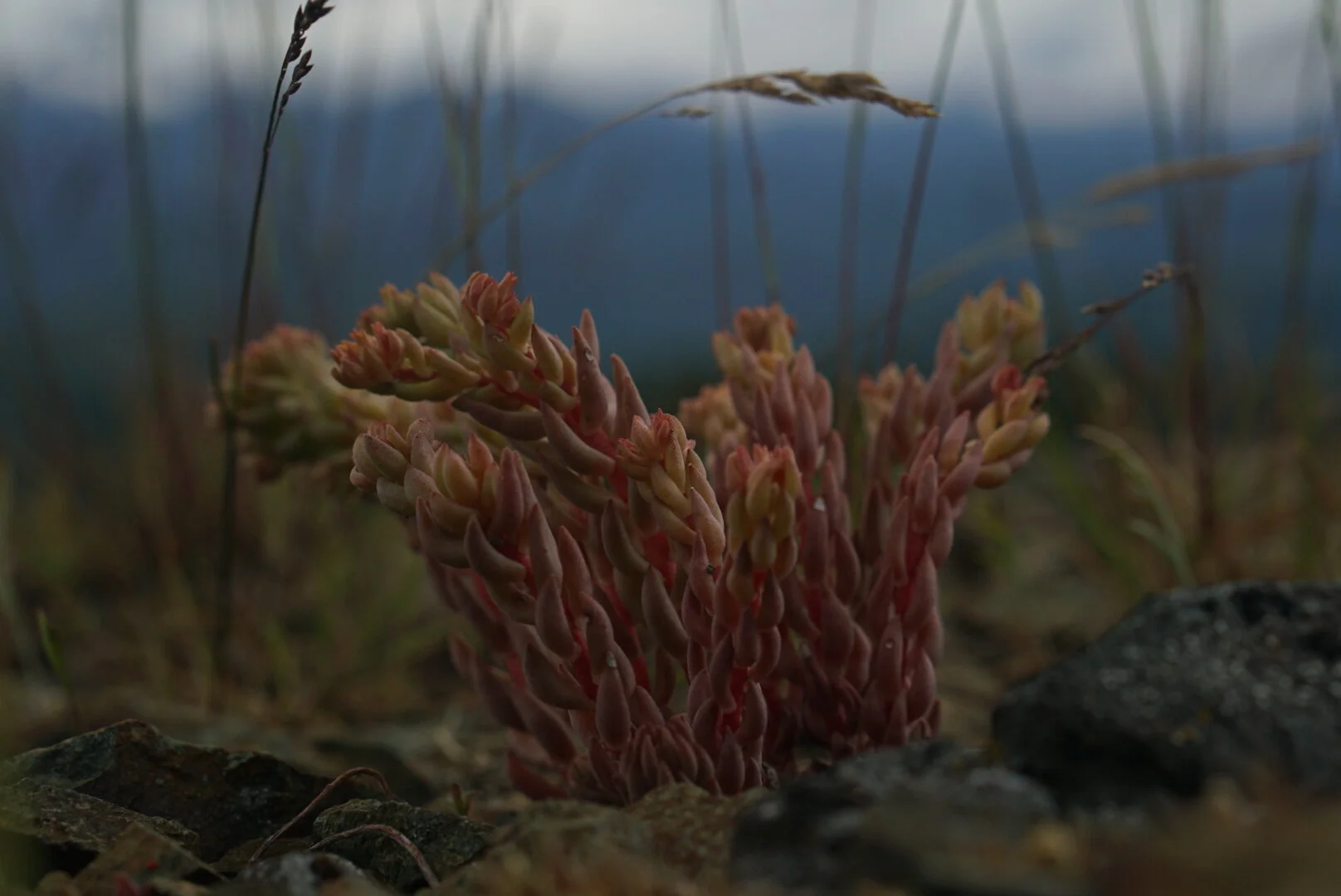Grief rituals and ecological grief are justifiably trending now, but despair still gets a bad rap. It’s still the emotion that we want to shame and avoid. It’s the emotion that, along with Anger, we often use to patronize and “pity” marginalized people. I even cracked open a beloved Rebecca Solnit book lately and got told to, whatever I do, not go there. In some ways, this is a literary and linguistic problem, not a sign of bad faith: "despair" has come to be a stand in for some sort of existential defeat, instead of for what it is: a complex emotion and somatic experience.
—
Being a social and ecological emotion, despair often means something is happening outside ourselves. I worry that too often it gets swept aside as a personal failing. People are actually asking us, over and over, to listen to their despair. Why in Godx's name should our response be that despair is useless?
—
I’m not telling you to seek it out as if it’s the latest New Age therapy. But it has a massive purpose. Every emotion we are capable of feeling does. With despair, what I’ve learned is that purpose is on one hand, to decompose old systems of value and meaning that we used to navigate the world (especially ones that we used to try to control said world). It totally, and often mercilessly, abolishes (our sense) of meaning & justice from our lives. Maybe you’ve already been through it and you know what I’m talking about. If you have, thanks for still being here. Thanks for even trusting my intention enough to read a paragraph of my words—that’s a lot in these times.
—
Despair is truly, barely survivable for many people and I don’t mean at all to trivialize it—yet I would argue more people would survive it if those of us holding more power and privilege actually acknowledged when we feel it too, in socially responsible ways.
—
But what is possible after (or during?) despair is something that our world, especially the so-called Western world, is in dire need of: reenchantment. Reenchantment does not mean a new overlay of Meaning(TM) that’s just different words than the old Meaning system. It means that the new meaning we see in the world is written in an entirely new language—or maybe it’s not written at all, maybe it’s sung or danced. Maybe it’s seen in the eyes of another human or non-human, or felt in the presence of a smog-less day. Maybe there are blank pages—maybe it’s supposed to be in incomplete. To be enchanted is to be able to be courted by Mystery again—to not simply recoil In fear *especially* if we wield power and influence in our communities. Because there is so, so much Mystery out there, and within each of us, still. It’s not so much waiting to be discovered as it is waiting to be celebrated, revered, from wherever we are. Don’t forget that awe and wonder are still accessible to you, and don’t forget that there are still things out there that can sway your heart and take your breathe away.
—
And so much of this re-learning depends on our capacity to survive total breakdown. To live and walk this world with a broken heart, but to know we are not defeated. A capacity which I fear, many of us (possibly me included) have lost, now and again. I believe we can find it again. The Earth and her many cycles make sure of that.
—
There are people in this world building new worlds out of fires of despair. A lot of those people are Black and brown people, transgender people, disabled people, incarcerated or formerly incarcerated people, and just plain sensitive and highly empathic people (and I think there are a lot more of you out there in this last category than you let on ) folks who have been forced to carry the despairs of societies and cultures, many not even their own. Some people would look down on this despair with fear and loathing, say put it back in this box (that some of my ancestors made), but I know its holy. It is holy in you, whether you fall into a category I named or not. And that doesn’t dismiss the pain of it, nor is it supposed to pedestalize it.
—
Justice is evidence of our capacity to acknowledge both divinity and despair in the world.
—
One person who really helped me feel & think through this is the ecofeminist psychotherapist Miriam Greenspan. Her work on Despair is a masterpiece.
—
From an historical perspective, us European-derived people, we have been in a period of barely acknowledged despair (grief too yes) since at least we started telling stories about how God is Dead, ( like Pan was before him), oh yeah Matter is Dead too, Animals Don’t have Souls, and Everything Eventually can Be Explained (apparently with gothic, buzzkill statements formulated as [Noun] is DEAD! )
—
I’m not even saying the opposite of those things are true. It’s just that when you act like you know, or can know that much, it drives all around you, and if you’re a famous philosopher or thinker-man, all those under your influence, into a state of learned hopelessness and at worst, self abandonment.
—
The other big thing is that power and privilege can, to an extent, insulate us from despair. Especially wealth & influence. They can muzzle despair, as it were—keep it simmering in the form of anxiety, insecurity, suspicion, and fear of others. It doesn’t mean we don’t feel it, in some form. What it means is that, as people with class privilege, wealth, influence, whiteness, we can arrange reality so that it doesn’t bring us down. And that’s dishonest and actually, quietly violent because the cocoons we weave are often made of threads of anti-blackness, anti-immigrant, anti-Unknown, anti-Anyone stirring the pot, anti-riot, anti-feeling, anti-mystery, anti-life—we might not even be conscious of that. It’s the ultimate abandoning of the self that in spite of all the shiny things, wants to transform through relationship with Others & the Unknown. Everyone has the right to retreat, to cocoon themselves, to heal, even to escape disaster or a zombie apocalypse. But if my retreat is built on hate, resentment, envy, it’s *not actually retreat*—it’s some intense involvement, cause hate is one of the strongest attachments there is.
—
I hesitate to join in the chorus that pits despair and hope as opposites, even moreso a binary. I think they are twins of a sort. I feel like engaging with despair in a curious way (at least as much as I can manage it), has helped me with hope. Since Despair works on such a deep, fundamental, indeed animal/somatic level, it's like it can reconfigure what I’ve used as a basis for hope in the first place. In my humble opinion, my despair (and many other emotional states) are inextricable from the political because it/they acts on my relationship with my values and worldviews. Similarly, my hope is not apolitical either. What have I been conditioned to hope for by society, as a white person—what about as a trans person? (And importantly, what have I been conditioned to not hope for?) I want to look and ask the question through every social prism that I occupy, not because I want these identities or statuses to define me, but because this is what it will take to heal my (and our) imagination. And what could a decolonial hope look like, for me? For you? What my hope might look or feel like—especially after despair, the social and ecological emotion that it is—may change, but it will still exist out there, like a stealthy creature, who’s feet fall lightly on the ground. My task now, is to to track hope, to become current with them, to recognize what they, now, are.
—
So I’m done with the plea to “not despair.” What I think those kind people really mean is don’t give up. Despair doesn’t have to mean we are giving up or resorting to harming ourself or others. *thats not what despair is.* Your Despair is ancient somatic wisdom that is radically dislodging whatever you were focusing or centering with your attention/life/hopes and saying “Hey, this isn’t the Center anymore. Figure out how to live now.” Let yourself go there, with the support of loved ones, creaturely Kin, and the Land, if it’s safe to. I’ll be here when you get back, and I’m sure you’ll have something huge to teach me, and all of us, if you so choose.
Words & Photo by So @borealfaun

